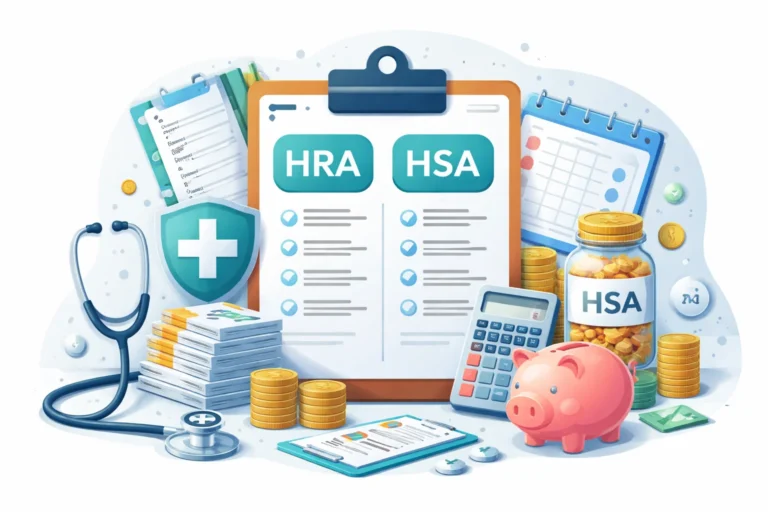Critical Illness Insurance: How It Differs from a Regular Health Insurance Policy
Health is a valuable part of our lives, and protecting it has become more important than ever. Most people are familiar with health insurance and how it can help cover the costs of treatments, hospital stays, and doctors’ visits. But there’s another type of plan called a critical illness insurance. This plan is usually overlooked, and can be equally important, especially when facing a health situation that may change your life.
Before you make a decision, it is important to understand what each plan has to offer and which might be right for you.
What Is Regular Health Insurance?
A regular health insurance policy is designed to help you cover medical expenses. These expenses can include:
- Doctor consultations
- Hospital stays
- Surgeries
- Diagnostic tests
- Medicines
- Daycare procedures
- Post-hospitalisation care
When you fall ill or need medical care, your insurance provider pays for all or part of your treatment costs, up to the sum insured. You either get reimbursed for your expenses or your hospital bill is paid directly through a process called a cashless claim.
This kind of policy helps reduce the financial burden of getting treated. It gives you access to quality care without worrying too much about the cost.
What Is Critical Illness Insurance?
Critical illness insurance is different from regular health insurance. With this plan, you get a fixed, lump-sum amount if you have one of the serious illnesses covered under the plan instead of paying your hospital bills. Some of the illnesses covered are:
- Cancer
- Heart attack
- Stroke
- Kidney failure
- Organ transplants
- Paralysis
- Major surgeries
When your diagnosis is confirmed and it meets the terms of the policy, the full sum insured is paid, regardless of the actual treatment cost. You can use the sum insured in any way you want, for treatment, recovery, paying off loans, and even to replace any lost income.
Key Differences Between Health and Critical Illness Insurance
Below are the main ways in which critical illness insurance differs from regular health insurance:
| Factors | Health Insurance | Critical Illness Insurance |
| Purpose of the Coverage | Pays for actual medical expenses and hospital bills. It’s meant to support regular treatment and short-term illnesses. | Offers financial support during serious, long-term illnesses by giving you a one-time lump sum payout. |
| Payout Structure | Pays based on the treatment cost. The insurer pays bills directly or reimburses you. | Pays the full insured amount once the illness is diagnosed, regardless of the treatment cost. |
| Use of Funds | Can only be used for approved medical expenses. | You can use the payout however you want, for medical care, home support, lifestyle changes, or even to pay EMIs or daily expenses if you’re unable to work. |
| Claims Process | Requires hospital bills, prescriptions, and other documents to process claims. | Needs proof of diagnosis and sometimes a doctor’s certificate. The process is usually quicker and simpler |
| Coverage Period | Generally renewed yearly. | Can be term-based or long-term, depending on the plan you choose. |
Why Might You Need Critical Illness Cover?
Chronic illnesses can have an impact on your way of living. The recovery process after serious illness can take months or even years, and often people cannot return to work during that time. There is no income, and expenses never stop. Some of the reasons why having this type of plan is important are:
- Loss of income: You might need time off work or even leave your job. The payout helps you manage regular expenses without stress.
- Non-medical costs: Not all costs are covered by regular health insurance, like travelling to a specialist, home care, or therapy.
- Financial freedom: You can use the money in whatever way is most helpful for your situation.
This makes it a strong backup during difficult times.
Who Should Consider It?
You don’t have to be old or already sick to think about critical illness protection. In fact, the earlier you buy it, the better, because it’s cheaper and often comes with fewer conditions. You may want to consider it if:
- You have a family history of serious illnesses
- You are the main earner in your family
- Your job doesn’t offer paid sick leave or long-term benefits
- You want peace of mind knowing you’re covered for major health issues
Can You Have Both?
Health insurance and critical illness cover serve different purposes and can work well together. For example, you suffer a heart attack. Your health insurance takes care of the hospital bill. Meanwhile, your critical illness insurance pays you a lump sum. You can use that money during your recovery, cover home care, or manage household expenses if you can’t work for a few months. Hence, combining both can give you medical as well as financial support.
How to Choose the Right Policy
If you want to protect yourself or your family, below are a few tips to help you choose the right plan:
1. Understand Your Needs
Think about your lifestyle, family medical history, and financial requirements. If your family has a history of heart disease or cancer, it is advised to consider having a critical illness cover.
2. Compare Plans
Before buying a policy online, compare different plans and read the terms carefully.
3. Review the Claim Process
A straightforward and seamless claims process is important, especially in a medical emergency. For instance, Axis Max Life Insurance has a claim settlement ratio of 99.70%, which shows their ability to settle claims quickly and fairly.
4. Check the List of Covered Illnesses
Some critical illness plans do not cover all illnesses. Ensure that the one you choose covers the illnesses you are most concerned about.
Conclusion
Although health and critical illness insurance mainly provide protection for your health, they do so in very different ways. Best health insurance policy in India includes paying for medical expenses, while critical illness insurance gives you immediate access to money to help cover more serious health-related situations. Understanding the difference between the two will help you plan your future properly.






